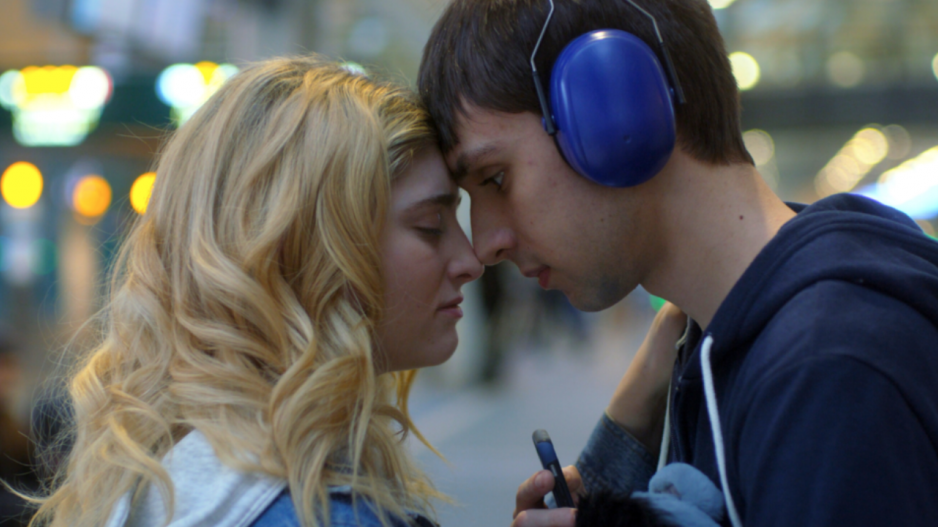It can be a double edged sword, inclusivity in film. The two steps forward taken by the industry when representing otherwise marginalized or excluded communities are often followed by a step back when that community isn’t represented as accurately as it could be.
It is the driving force behind much of Connie Cocchia’s work. The LGBTQ+ writer and producer, originally from West Vancouver, has made creating accurate representation in film her raison d’être.
Now, for her directorial debut, she’ll be releasing a film that has a character with autism at its centre – but not in a way that you’ll likely have seen before.
Unlike films like Rain Man and Extremely Loud & Incredibly Close, which depict those with autism spectrum disorder as savants or hyper-logical detective types, Cocchia’s character bears a relationship to neurodiverse people who live regular lives.
Named When Time Got Louder, the film follows college student Abbie (The Hunger Games’ Willow Shields) as she moves away from her family for the first time. Leaving behind a brother with non-verbal autism, she is torn between her new life – and new love, with a woman named Carly – and her old life.
Both Abbie and Carly are played by queer actors, while Kayden, Abbie’s brother, is played by Jonathan Simao, an actor who can harness his own experience being on the autism spectrum.
“When I was writing the story, it was always in my head that it would be somebody on the autism spectrum playing the role of Kayden,” says Cocchia.
“It was absolutely crucial to me, it was something that was a non negotiable.”
While the story itself is fictitious, much of its inspiration draws from Cocchia’s own experience growing up with a brother with autism spectrum disorder.
Casting Simao, she says, ensured that the material would be connected with in an “honest and personal way” and those like her brother would finally be able to see a character on the screen they could relate to.
As an actor who is determined to demolish stereotypes and reshape the public perception of neurological disorders, Simao says accepting the role of Kayden was a no-brainer.
“Typically in other media when representing a character with autism they are portrayed as gifted individuals, and while that’s not inaccurate it’s only a representation of a small minority of individuals on the spectrum,” he says.
“Kayden is portrayed as someone just simply living with autism, and how that affects his experience with people and the world around him.”
Simao says neurotypical actors can easily mimic behaviours that individuals with autism emit, but only those with autism can truly understand what it is like to experience it.
“When an actor with autism brings that experience and that perspective it feels more authentic, and impacts others in a way where they are able to feel what these characters are experiencing,” he says.
Simao’s authentic representation has helped enlighten Cocchia just as much as it will do audiences, with the director crediting the actor for helping her understand aspects of her brother’s experience she hadn’t known prior.
“Jonathan was able to articulate to me the experiences that he’s had as an individual on the autism spectrum, and things that I’m not able to communicate with my brother to understand,” she says.
“It was a real gift when Jonathan and I were rehearsing, and working together to create the role of Kayden, that I could ask him questions like, ‘What is it like for you when you ride a bus? What is the sensory stimulation? Describe it to me, because I can’t ask those questions to my brother.’ That was a huge benefit.”
The film, which has already been nominated for Outstanding First Feature at the Frameline San Fransisco International LGBTQ Film Festival last year, will be released March 31 at Cineplex Fifth Ave to coincide with Autism Awareness Month, and the official World Autism Awareness Day on April 2.
It will be followed later that weekend with a Q&A with the cast and the crew – including Shields, Simao and tv veterans Lochlyn Munro (Riverdale) and Elizbaeth Mitchell (Lost), who star as Abbie and Kayden’s parents.
Cocchia hopes it will mark the beginning of a new era, where stories with such accurate and true representation are no longer novel, and families like her own can relate to what they see on the big screen.
Mina Kerr-Lazenby is the North Shore News’ Indigenous and civic affairs reporter. This reporting beat is made possible by the Local Journalism Initiative.




